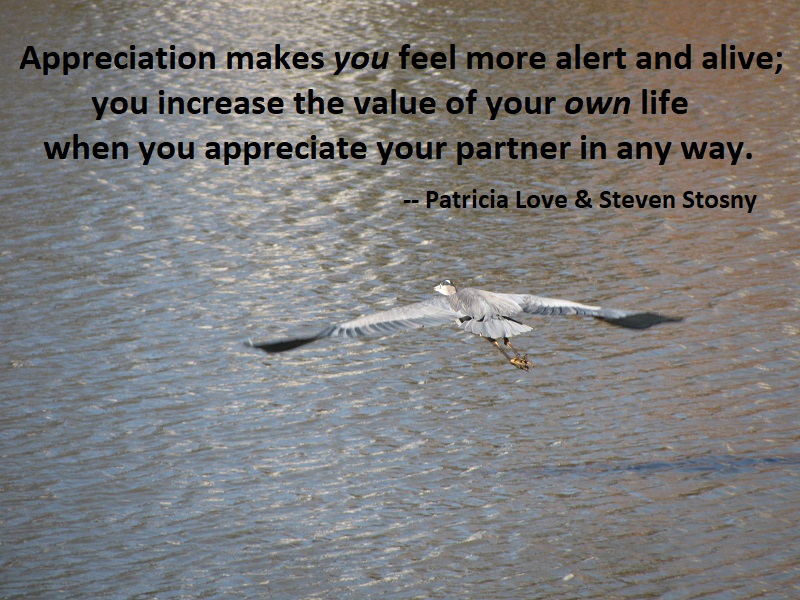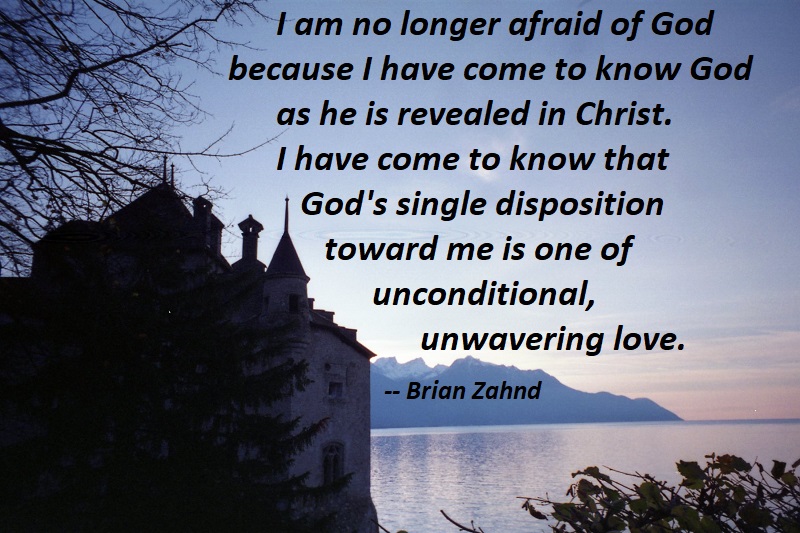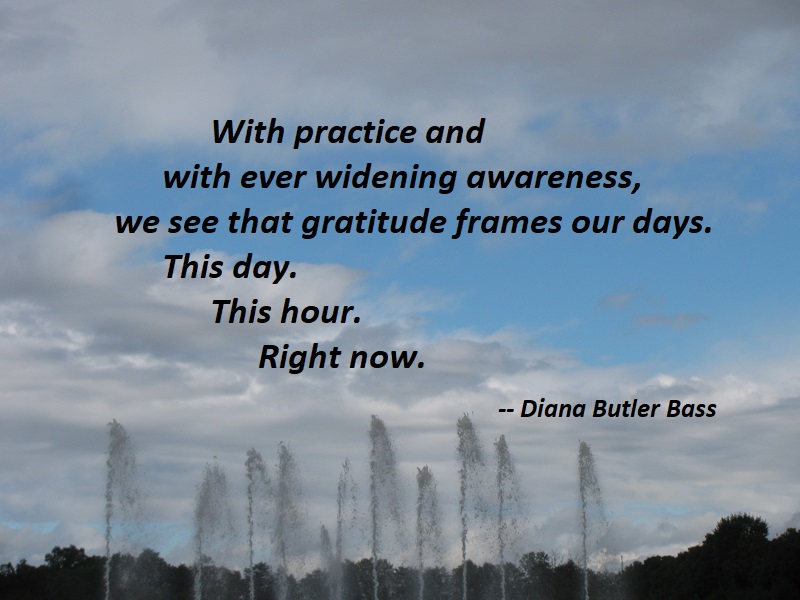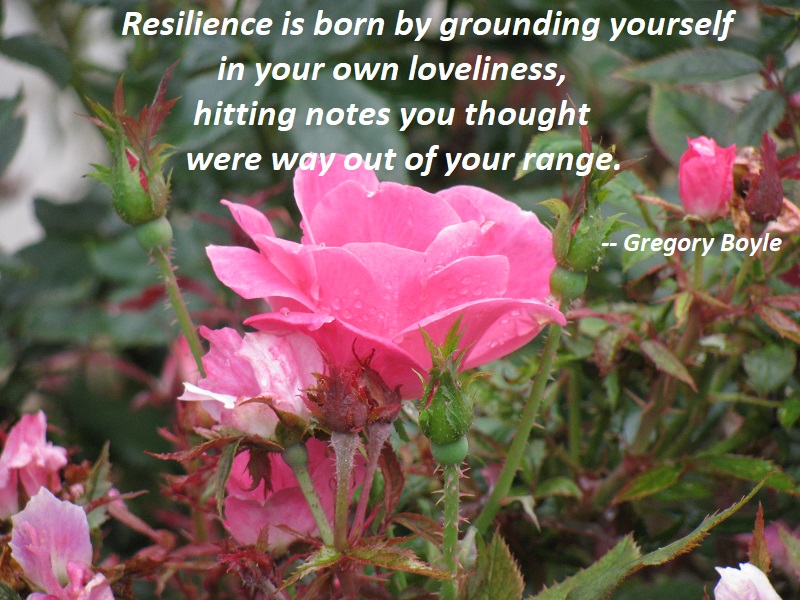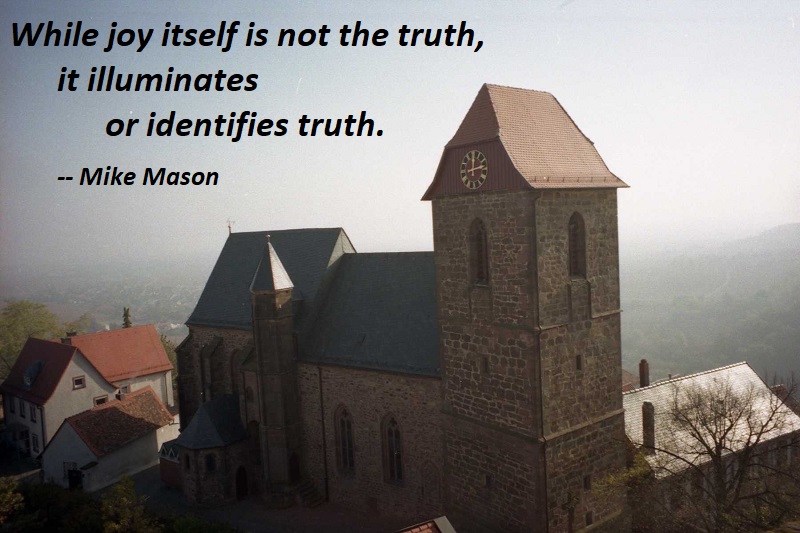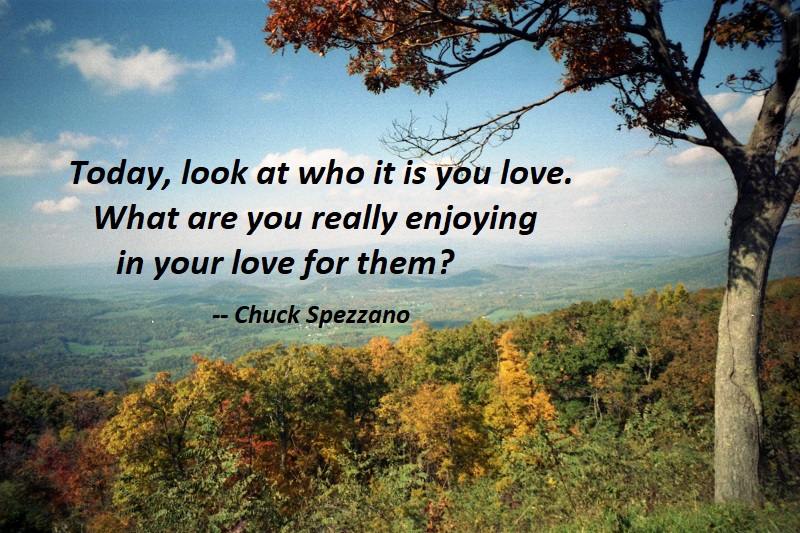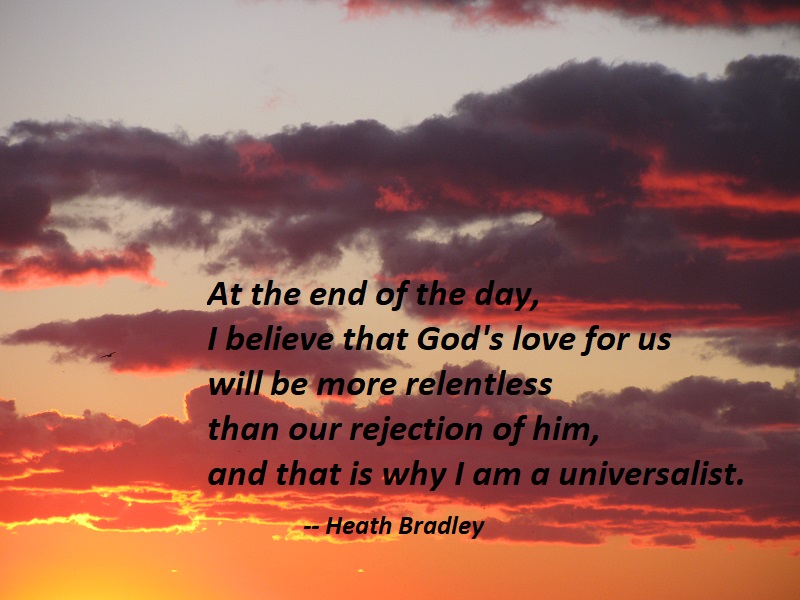
At the end of the day, I believe that God’s love for us will be more relentless than our rejection of him, and that is why I am a universalist. I do not at all underestimate how deeply rooted self-centered and sinful patterns of living can be, but at the same time I do not think we should underestimate the power of God’s just and holy love to pull the roots of sin out of our hearts.
If I am proven to be wrong about this, if some will forever hold out against God, then I think God will not be offended if I put too much confidence in the power of divine love. Even if one doesn’t go all the way in affirming that God will ultimately heal every human heart and transform every evil will through destroying all sin with the fire of his holy love, it seems to me that every Christian should at least have hope in the possibility of this happening. Jesus, after all, told us that, “with God, all things are possible” (Matt 19:26). We should take careful note of the fact that when Jesus said this he was explicitly referring to the power of God to save even those who seem impossible to save from a merely human perspective (Matt 19:23-26). When it comes to who can be saved, our hope is in divine possibility, not in human probabilities.
— Heath Bradley, Flames of Love, p. 101-102
Photo: Sunset from Waterside Inn, Chincoteague, October 22, 2016

